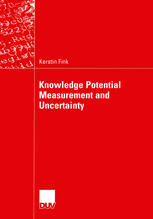

Most ebook files are in PDF format, so you can easily read them using various software such as Foxit Reader or directly on the Google Chrome browser.
Some ebook files are released by publishers in other formats such as .awz, .mobi, .epub, .fb2, etc. You may need to install specific software to read these formats on mobile/PC, such as Calibre.
Please read the tutorial at this link: https://ebookbell.com/faq
We offer FREE conversion to the popular formats you request; however, this may take some time. Therefore, right after payment, please email us, and we will try to provide the service as quickly as possible.
For some exceptional file formats or broken links (if any), please refrain from opening any disputes. Instead, email us first, and we will try to assist within a maximum of 6 hours.
EbookBell Team

0.0
0 reviewsWhereas the measurement of tangible assets, e.g. cost of sales or raw material, used to be one of the main issues of business in the past, the focus has now shifted towards intangible assets such as the knowledge potential of a firm's knowledge workers. Against this background, the measurement of knowledge has become a challenge for the managers of knowledge based companies and they are looking for a knowledge measurement model to achieve the optimal organization well-being.
Kerstin Fink discusses the two mainstream measurement fields: the cognitive science approach and the management approach. She develops the knowledge potential view which is determined by nine key measurement variables, i.e. content, culture, networking, organizational knowledge, learning and training, customer and competitor knowledge, and knowledge management systems. The author applies the analogical reasoning process and uses Werner Heisenberg's Uncertainty Principle as a framework for the employee knowledge potential measurement process. Her aim is to assign a specific knowledge classification or value to each employee. Case studies demonstrate the model's practical use.